1.17 Underground worlds: graffiti, skateboarding and virus writting

With l0ve, by s01den
02/2020
Introduction
This time, no technical article strictly speaking, after all a zine is also made to express, discuss, digress beyond simply transmitting knowledge. This old medium of knowledge sharing may have fallen into disuse here, in our world, that of the "vx scene" and more globally in all the scenes related to hacking.
Of course, some persist, like the immortal Phrack [0], while others, much rarer, are created often taking a very different form from the old txt file. that we know, like PagedOut[1].
How did this format disappear? Why did it disappear? What are zines replaced by today?
I will not answer these questions here.
What I want to show here is the links between this world and other more "real" scenes, like graffiti or skateboarding, scenes that they have not lost this old tradition of zine.
I'm going to use the word "scene" a lot here, it's simply a space where human activity takes place, whatever it is.
There are many, for each collective practice in which there is transmission of knowledge (often through zines, we will come back to this).
Of course, we can mention the vx scene (the scene which gathers people who write viruses and work on on the techniques involved);
the cracking scene (the one that regroups the different groups of software crackers), but also scenes that evolve mainly in "real life", like the skateboard scene at home, your local graffiti scene, etc. or your punk scene.
The hijacking of standards
What do these seemingly distant cultures have in common?
It is above all a question of the misuse of social norms.
Skateboarding and graffiti are practices of the street, they give it life, they transform this dead space, which everyone walks around every day without ever seeing the details (stickers, tags, architectural curiosities...), into a space of expression.
Any skater will tell you, skating irreversibly transforms your way of seeing urban spaces.
You end up looking for spots everywhere, every time you go for a ride in a car, on foot or by bike.
Each set of steps, each bar, each bench and even each wall (long live the wallrides) becomes a potential place of expression.

For graffiti, it's even more radical: any surface will do, the more exposed it is, the more it will be rewarding but the more dangerous it will be to leave your blaze.
"Make a panel and you'll never see Paris the same" as the other one said. [2]The street becomes a huge canvas on which to put one's name or that of one's crew.
Before our eyes every day in the street, whether we walk or take the train, it takes place without hiding: the graffiti writers' turf war; whether one chooses to ignore it or that one is plagued by these "degradations", this "vandalism".
What graffiti offers us is popular art! Made by the people, for the people.No need to go and spend money in museums, no need to have basic cultural capital for be able to appreciate it. It's free, you just have to leave your home!
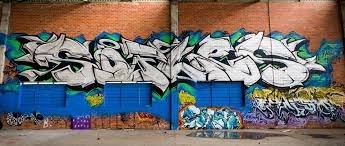
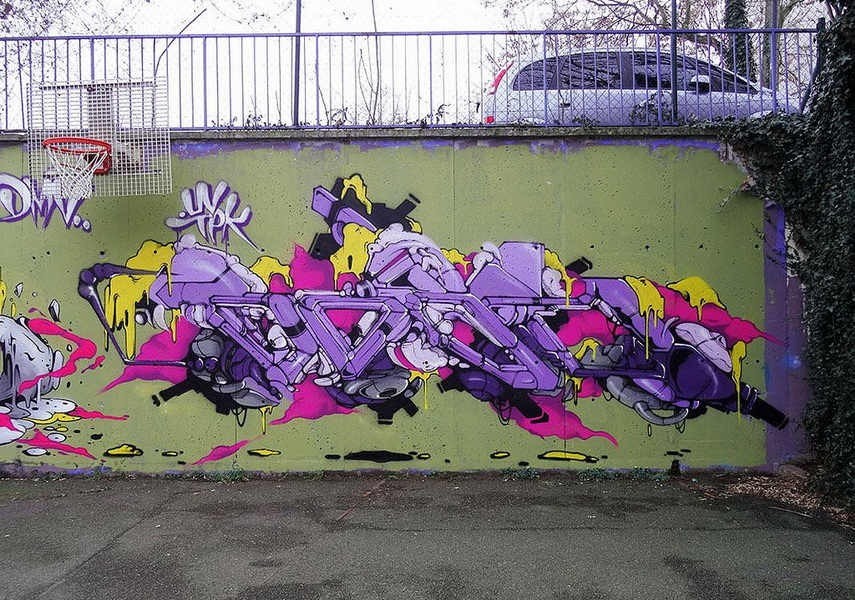
Hijacking is also essential to hacking in its broadest sense.
It is often said that hacking something is simply diverting it from its original function, whether for example for a cracker in the study of software protections to bypass them or for a vxer in hijacking a program to inject code into it.
It is because of the inherent misuse of standards that these practices are often frowned upon.
from the outside.
How many skateboarding sessions interrupted by the arrival of the capital's militia or by old jerks for whom "a bench, it's not made for that"? After all, "we built you a skatepark, that's what it's made for over there".
Let's not even talk about graffiti, which is only considered as vandalism when it's not gentrified, locked up in a art gallery and sold.
Here again, we try to contain it, to kill this spirit of detour of norms by creating new, more "adapted" ones.
Scenes related to the hacking world, such as the vx scene or the cracking scene, have of course also bad press.
How many times do we hear "programmers build and crackers destroy"?
Finally, unfortunately for the vx scene, we rarely imagine that people can be interested in studying and designing of malware without spreading them in the wild...
Moreover, cracking and computer viruses are often considered "cyber-vandalism"...
But, what if in fact, it wasn't us who hijacked the standards for the simple pleasure of hijacking?
What if in fact, it wasn't us who defined deviance?
The sociologist Howard Becker has worked a lot on the subject [3], in his book "Outsiders" he develops the idea that Deviance does not come from individuals who are labeled as such, but rather from the people who are involved in enforcing standards. "Social groups create deviance by instituting norms whose transgression is not necessarily a result of their own actions.
constitutes deviance, by applying these standards to certain individuals and labelling them as deviants".
This explains a lot of things, for example why skating a curb[4] is so frowned upon.
The established standard is simply to use this furniture (a curb can be a bench for example).
to do something definite (sit on it); any behaviour that deviates from this rule will be perceived as deviant.
Thus, skaters, graffiti writers and hackers do not divert for the sake of diverting, they exploit simply a medium in a creative way, in a way that was not originally intended.
Of course there is a reaction: the cities adapt and we see "antiskates" blooming on our spots, on their benches; everything as specialized cop brigades for graffiti artists develop;
just as anti-virus software companies have grown.
These counter-measures do not discourage, quite the contrary.
A form of cat-and-mouse game between the reactionary forces and those who practice graffiti is then set up:
the presence of guards adds a more or less playful infiltration dimension to the graffiti sessions in the metro;
just as the appearance of antiviruses logically led to the appearance of methods of concealment such as polymorphism in viruses.
Movement can only exist through contradictions.
"In all things and phenomena, the interdependence and the struggle of their contradictory aspects determine their lives and animate their development. There is nothing that does not contain contradictions. Without contradictions, there is no universe", said Mao [5].
5] There is a contradiction here between practitioners and those who want to regulate or prohibit the practice; and this contradiction The practice evolves and adapts to the constraints imposed on it.
Thus countermeasures also adapt themselves, and thus start the cycle all over again.
This is the dialectical movement of things.
Organization in groups
Obviously, the social aspect of all the practices I have mentioned since the beginning of this article is primordial in their construction.
A "scene" is essentially a "macrogroup" composed above all of many small groups of individuals (whether formal or not).
Without a group, there is no scene.
These groups can take different forms depending on the practice in question. We will speak for example of "crew" of graffiti artists and groups" of crackers or vxers.
Among skaters, the groups are much more informal and are based primarily on affinity, taking especially the appearance of bands of buddies who skate together, without giving themselves a name, unlike the crew of graffiti artists for example.
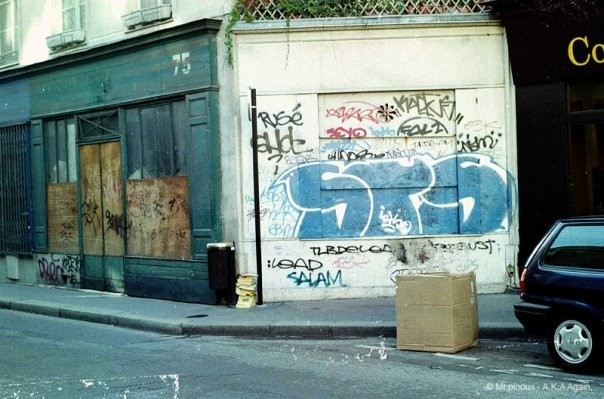
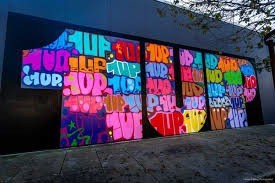
Why organize in groups in other practices then?
It allows you to affirm the "official" existence of your group in the scene in front of other groups.
One might think that the need to create such an identity stems directly from the type of practice.
Indeed, where skateboarding is in itself an individual practice, some graffiti artists collaborate to create big pieces by mixing their styles.
just like in the punk scene, the bands are formed around the musical practice.
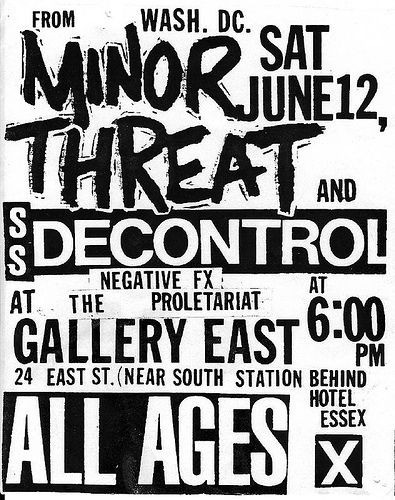
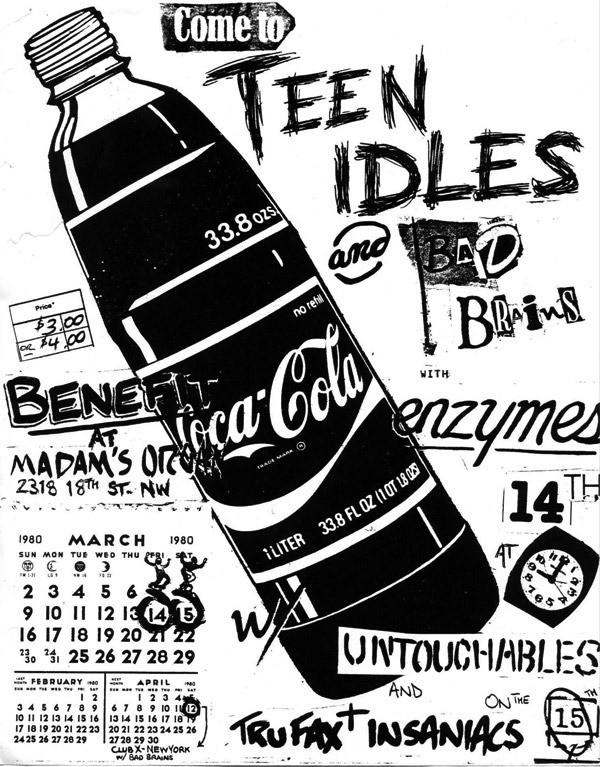
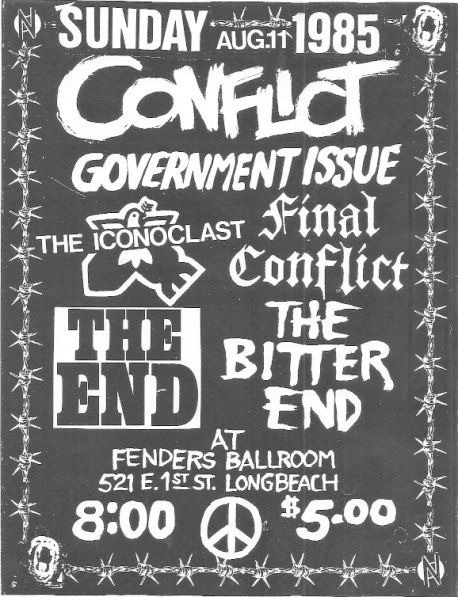
It is hard to see one person playing drums, guitar, bass and singing at the same time in concert.
Here the need to assert oneself as a group is obvious.
Groups of skaters can be formally formed when their members decide to produce something that will not be ephemeral, like a video for example.
It seems that as soon as the production of something material or something that will last over time[6] results from practice, the organization in a group appears naturally.
Of course it is not an absolute rule, in the sense that there are graffiti artists who work alone just as there are vxers who work alone.
work and publish their research on their own; but working in groups usually produces much more important things and allows for a better organization of the production.
For crackers, this organization is central; members have different roles in the group: some are primarily programmers, (they code tools such as unpackers for example), others do mostly reverse engineering (they are the ones who directly study software protections) and finally some are in charge of the distribution of the "releases", the cracked programs.
There are even artists who, through music and graphics, allow different groups to affirm their identity in another way.
by integrating their productions in certain releases (as in keygens [7] for example). This sub-scene has even evolved into a scene
in its own right to form the demoscene [8].
For more info about scene cracking, I recommend the articles "Overview of the scene" by Xylitol, published in Rafale [9].
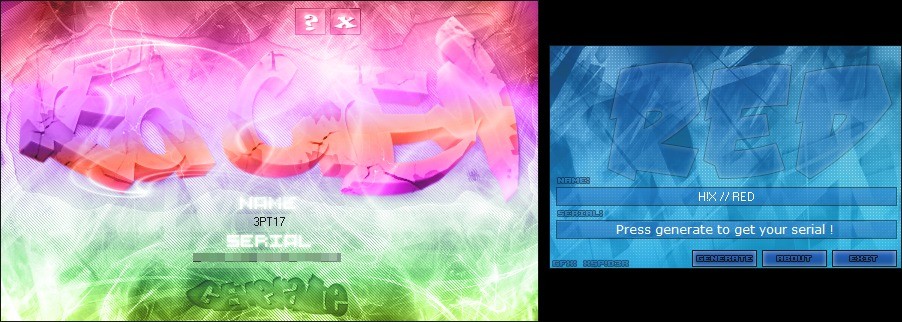
We can see a blatant link between graffiti and the cracking scene.
The transition of knowledge
For a culture to endure and evolve, it must of course be able to be transmitted in any way.
This takes various forms, but there is almost never a relationship of domination between the learner and the teacher.
To take the example of skateboarding, how do we learn to skate ? Of course there are "schools" or even official skateboard teachers;
but generally, one is introduced into a skateboarding scene by or with friends.
Thus, a certain horizontality is established, we learn by skating with others, by asking them questions, by observing them, and then sometimes by watching videos (here we have our first example of a knowledge transfer medium).
We help each other, we can make "parades" to reassure ourselves about certain tricks before trying them without, we learn tricks at the same time.
than his buddies, we confront each other during the "game of S.K.A.T.E" [10].
There is no classic teacher/student relationship, the more advanced practitioners simply advise the beginners, who themselves have to work hard in order to progress.
Thus we see here that the transmission of knowledge to new practitioners is done through oral communication and demonstration, through videos or directly face to face with more experienced practitioners.
Just like in skateboarding, the transmission of knowledge in the different hacking environments is done horizontally.
(although there are now university courses on "cybersecurity").
One learns primarily by oneself, by experimenting, by solving challenges, by watching conferences, by participating in CTFs, by talking to more experienced members of the scene; where skaters meet on the street or in skateparks,
We hackers meet on IRC or discord (and sometimes even in "real", in conventions) to communicate, to make the scene live.
We can then write articles ourselves (starting with Write-Up challenges that broke our heads) to transmit in our turn.
When we have a sufficient level, we naturally end up orienting ourselves in a specific discipline.
(reverse engineering, web, system operation, cryptography...) which leads us to focus on a specific scene.
(like for example the cracking scene for reverse engineering aficionados or a console hacking scene for pwn fadas) or, for example, to continue actively on the global CTF scene at a higher level.
In this way, we form groups with which we learn, create and share, which ultimately make the scene we are in live, and incidentally progress our discipline.
Whether we are punk, skater, graffiti artist or hacker; Do-It-Yourself and self-organization take a central place in our practice, and it is in this, among other things, that we stand out from the mainstream culture.
To get by, to help each other, to learn by oneself; all this leads to making efforts, whether individual or collective, and to creating.
Not to standardize but rather to propose new things.
That's how we come to the most important common point: zines.
A zine (abbreviation of "magazine") is simply a publication made by hand (here again we find the Do-It-Yourself spirit) and non-professional by a group of people passionate about a common, often obscure subject, so few numbers are produced per output.
Self-publishing allows much greater freedom of creation and tone, so zines are often very politically engaged.
If they are paid for (and this is rarely the case), it is often at low or even free prices.
Physically, they are often small in size, filled with collages, drawings and texts.
The content varies according to the central topics addressed by the groups that (self)edit it, but often remains ecclectic, It is thus not surprising to find vegan recipes alongside poems, stories, philosophical essays, interviews [11], song lyrics or even practical guides; all surrounded by home-made illustrations (and often with love!).

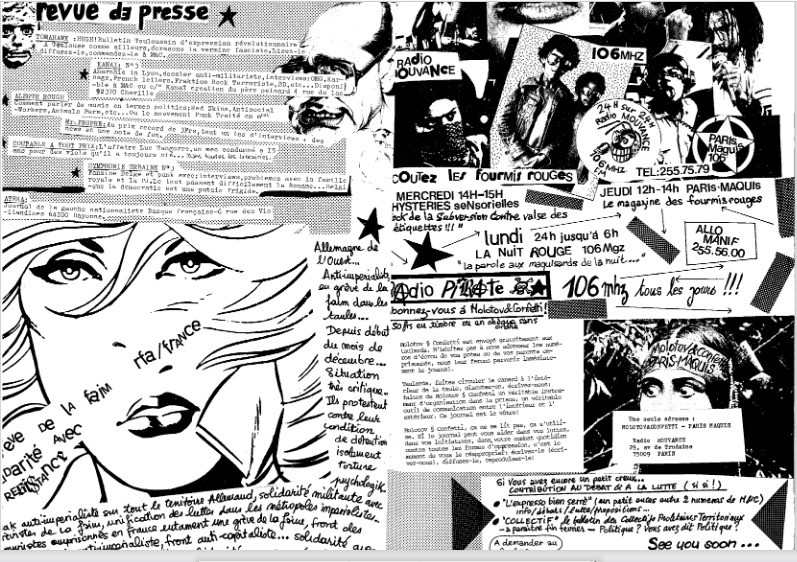
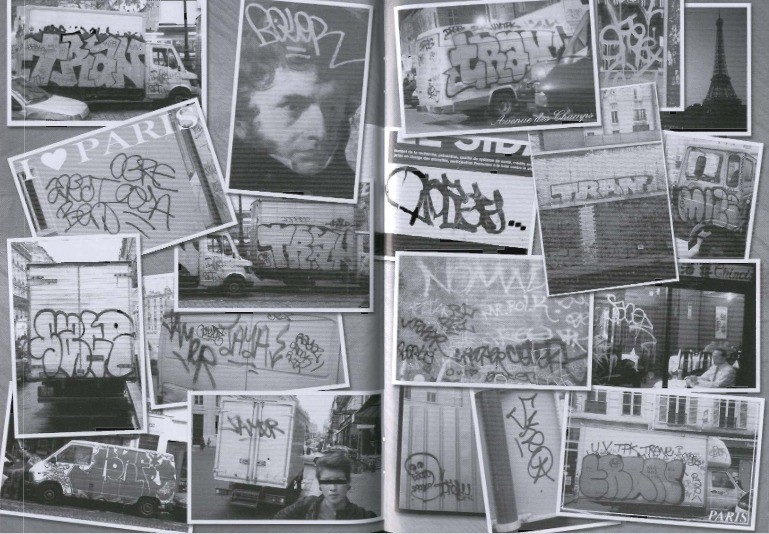
Although they first appeared in the 1930s among SF fans, they are now found in almost every "underground" culture, in punk culture (where they have a very important place) as well as in virtual scenes, like obviously the vx scene[12].
12] Thus, e-zines are not restricted to a limited geographical space: potentially all the fans of the same subject can be there.
access.
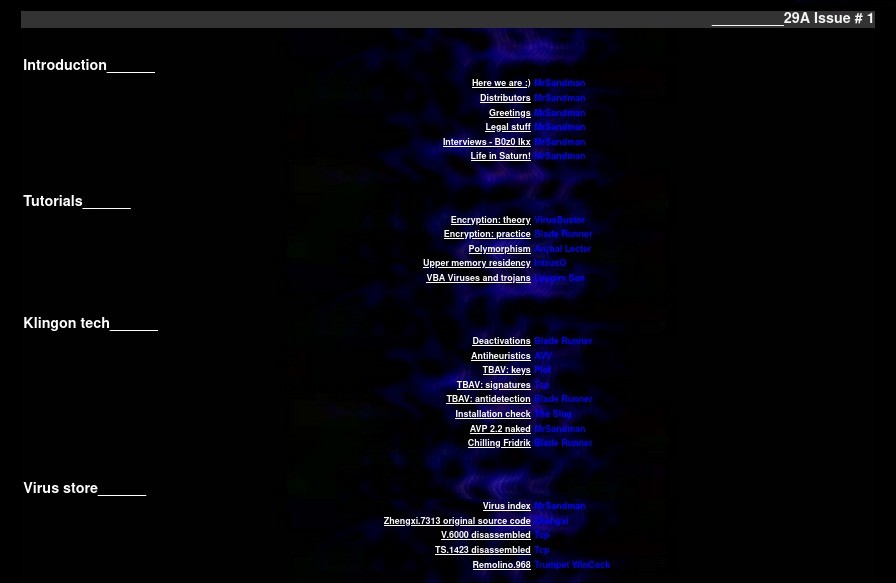
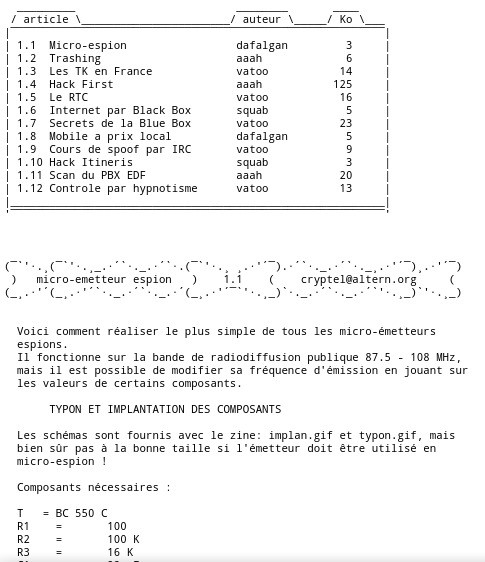
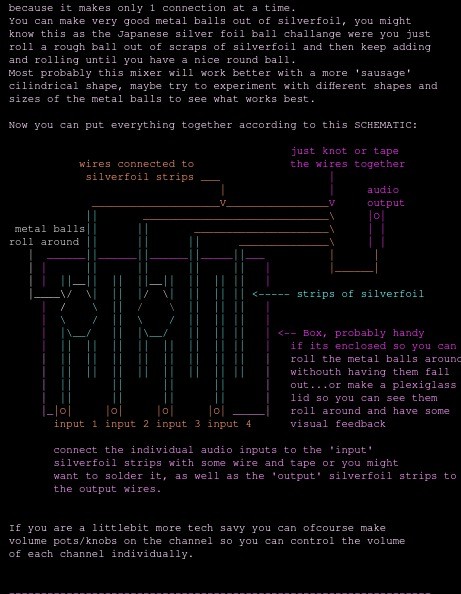
The ezines bring their scenes to life: they materialize the activity of the groups that make it up, allow them to express themselves and to transmit their knowledge (and their discoveries) to other enthusiasts.
You can find them of all levels and qualities.
They allow both the elaboration of an in-depth knowledge of the practice as well as the organization of the practitioners: it is a social binder, the cement of the scene.
Conclusion
I sincerely hope that this article has given you something to think about and that you have learned something.
that interest you.
In fact, I just hope he made you react, if you want to discuss it, insult me, ask me questions or add relevant things, do not hesitate to contact me:
+----------- Contact -----------+
| twitter: @s01den |
| mail: S01den@protonmail.com |
+-------------------------------+I just wanted to convey things on different subjects that are important to me, and to write down various thoughts that I had been carrying around with me for a long time.
I started to get interested in hacking a few years ago thanks to some old zines from the French scene in the 2000s that I had found by chance.
Basically, a scene can be summed up as a group of groups, formal or not, of people sharing a common interest, and their social interactions (production, competitions, performances, discussions and probably other stuff in "ions").
All the scenes formed around marginal cultures share common points in their functioning, notably the expression through zines.
Zines are the material expression of a scene, and thus they are a very important historical trace of it.
They make it possible to anchor in space and time the reflection of a scene at a given moment.
So let's continue to get out of them!
Let's organize ourselves to produce some.
Let's write articles, express ourselves, create; be it plays, poems or computer viruses.
But most of all.
Let's not let our virtual scenes wither away!
Notes and References
[0] http://phrack.org
[1] https://pagedout.institute/
[2] Degradation, Hugo TSR
[3] https://fr.wikipedia.org/wiki/Outsiders_(sociology)
[4] https://fr.wikipedia.org/wiki/Curb
[5] https://www.marxists.org/reference/archive/mao/selected-works/volume-1/mswv1_17.htm
[6] Like a music album or a skateboarding video.
[7] A keygen is a program to calculate activation keys for given software, allowing free registration.
[8] https://pouet.net
[9] http://rafale.org/
[10] https://en.wikipedia.org/wiki/Game_of_Skate
[11] We find interviews in almost all the scenes (we find interviews of bands in the punk scene, of important hackers in the hacker scene, etc.). and vxers in zines like phrack or eof-project, pro skaters in skate zines etc...)
[12] http://ivanlef0u.fr/repo/madchat/vxdevl/vdat/ezines1.htm
[13] http://legowelt.org/golemXIV/wp-content/uploads/2020/12/SHADOW-WOLF-CYBERZINE-ISSUE-9-DECEMBER-2020.html
Other links
http://www.tonerkebab.fr/wiki/lib/exe/fetch.php?media=wiki:proto-memoires:mehouas-clement:fiche_d_atc_le_fanzine_comme_liant_social.pdf // a nice essay on fanzines
https://tel.archives-ouvertes.fr/tel-01327029/document // on graffiti culture
http://julienlaurentjf.com/wp-content/uploads/2016/02/Le-skate-a-Montpellier-These-Julien-LAURENT.pdf // thesis of sociology on the skate scene of montpellier
https://papyrus.bib.umontreal.ca/xmlui/bitstream/handle/1866/14987/Lussier_Martin_2003_memoire.pdf?sequence=1 // dissertation of sociology on the montreal punk scene
Rafale19/Rafale19.02.HTML // "Overview of Scene #2-Use of Cracking and Warez graphics" by Xylitol
Rafale19/Rafale19.08.HTML // "Overview of scene #3 - the web groups" by Xylitol
https://vx-underground.org/zines.html // most of the zines of the vx scene
http://n8on.free.fr/hackzines/ // full of old french zines, linked to the world of hacking
http://madchat.fr/e-zines/ // idem
https://en.wikipedia.org/wiki/Zine
http://hashk.free.fr/ // full of graffiti zines
https://digdc.dclibrary.org/islandora/object/dcplislandora // full of old punk zines
http://www.geneticdisorder.net/ // a skateboard zine
http://textfiles.com/directory.html
Note: I could also have talked about the competitions that exist in the different scenes (CTFs, skateboarding or graffiti contests etc...).
























